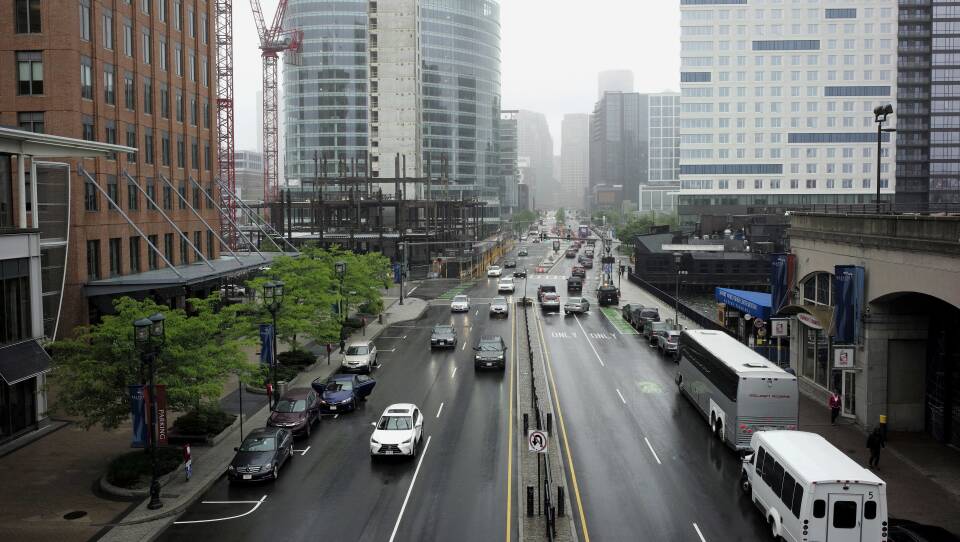Boston Mayor Marty Walsh plans to require all newly constructed city-owned buildings to be "net zero" for carbon emissions. The plan is detailed in an update to the city's Climate Action Plan, made public Tuesday.
The directive will require new city buildings to either cause no emissions of carbon — through a combination of efficiency improvements and use of renewable energy — or to offset any emissions, which are caused by oil and gas used for heating and electricity generation, with carbon-reducing investments.
City officials said Walsh will sign an executive order mandating the change in the coming weeks, after he attends the international C40 Mayors Climate Summit in Copenhagen later this week. At the summit, he plans to speak about Boston's efforts to prepare for climate change and sea level rise.
The new regulations won't affect buildings that are currently in construction, but must be included in all future proposals for new city-owned buildings.
Boston has already committed to being net-zero by 2050.
"Right now, we're on track to meet our goals," said Chris Cook, Boston's Chief of Environment, Energy and Open Space, when previewing the plan for reporters on Monday. "This plan keeps us on track."
The updated climate plan also includes a requirement that large private buildings will have to meet fixed carbon targets. Those emissions would have to reduce over time, with the goal of becoming net-zero by 2050.
"About 80 percent of all the buildings that are going to exist by our carbon-neutrality goal are already built," Cook said. That means retrofitting existing buildings will be crucial for the city to meet its goal of becoming carbon-neutral.
According to the plan, 2,200 of Boston's largest buildings represent about half of the city's emissions from buildings.
"We cannot have a handful of buildings contributing the majority of greenhouse gas emissions for our environment," Cook said. "And so we're going to need building owners to show leadership and partnership with the city."
Cook said owners of large private buildings that don't meet the city's net-zero standard could ultimately pay something akin to a fine.
"As you look forward into the future, if you have buildings that continually don't meet the standard, there's going to have to be an assessment in order to pay for carbon offsets. That could be one strategy," he said.
Or, he said, the city could develop financial models to help pay for those building retrofits.
"People understand that they need to take these actions," Cook said. "They want to be participatory in our neutrality solutions. But people want a clear framework. And so that's what we're hoping to do, is to develop a clear framework to then get on this path to neutrality. And also they want some predictability to the amount of finances that they're going to have to expend to make these retrofits for these buildings."
Cook said the city is now beginning a public process for developing those standards that will take up to a year and a half.
To pay for the new net-zero municipal buildings, Boston Chief Financial Officer Emme Handy said they can leverage the city's future savings.
"Over time, it is essentially repaid by the fact that we are not going to be spending the same amount of money on energy resources into the future," Handy said. "So it sort of catches up with itself."
Patrick Brophy, Boston's chief of operations, said those efforts in municipal buildings will inspire the private sector to follow suit.
"As we start to do that, we're leading the way for private companies and for nonprofit partners to start to take a look and say, 'Hey, if they're saving that kind of money on their capital investment, and they're creating cleaner and safer buildings for their employees and for their constituencies, then it makes sense for us to do it that way,'" Brophy said.
The new plan also states the city will develop zoning requirements for new net-zero construction, as well as new guidelines for reaching that goal in city-funded affordable housing.





